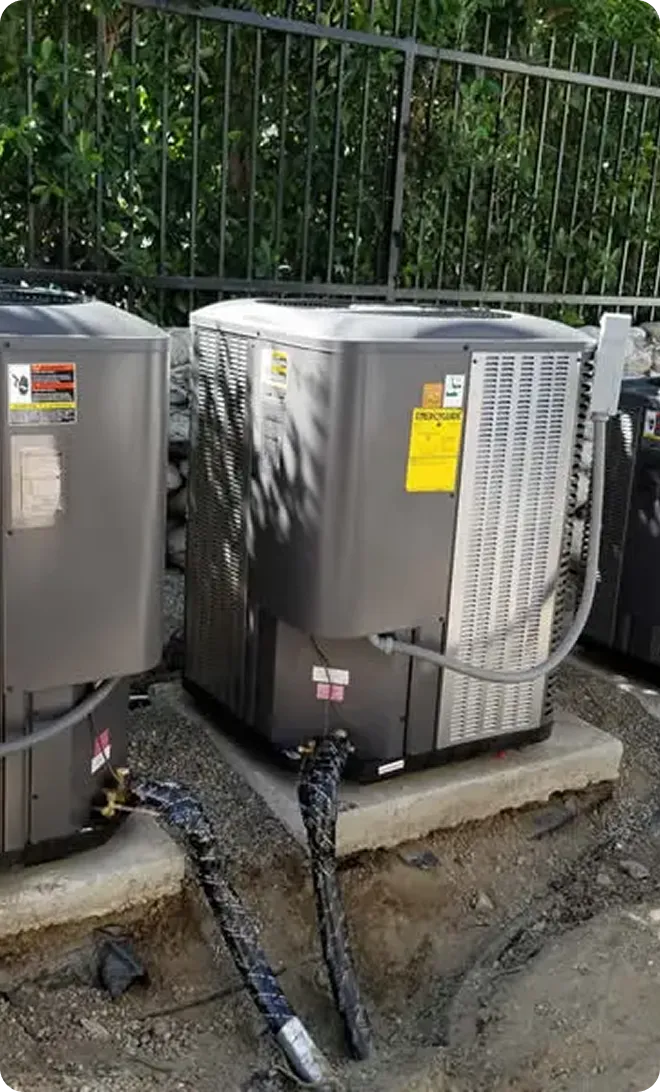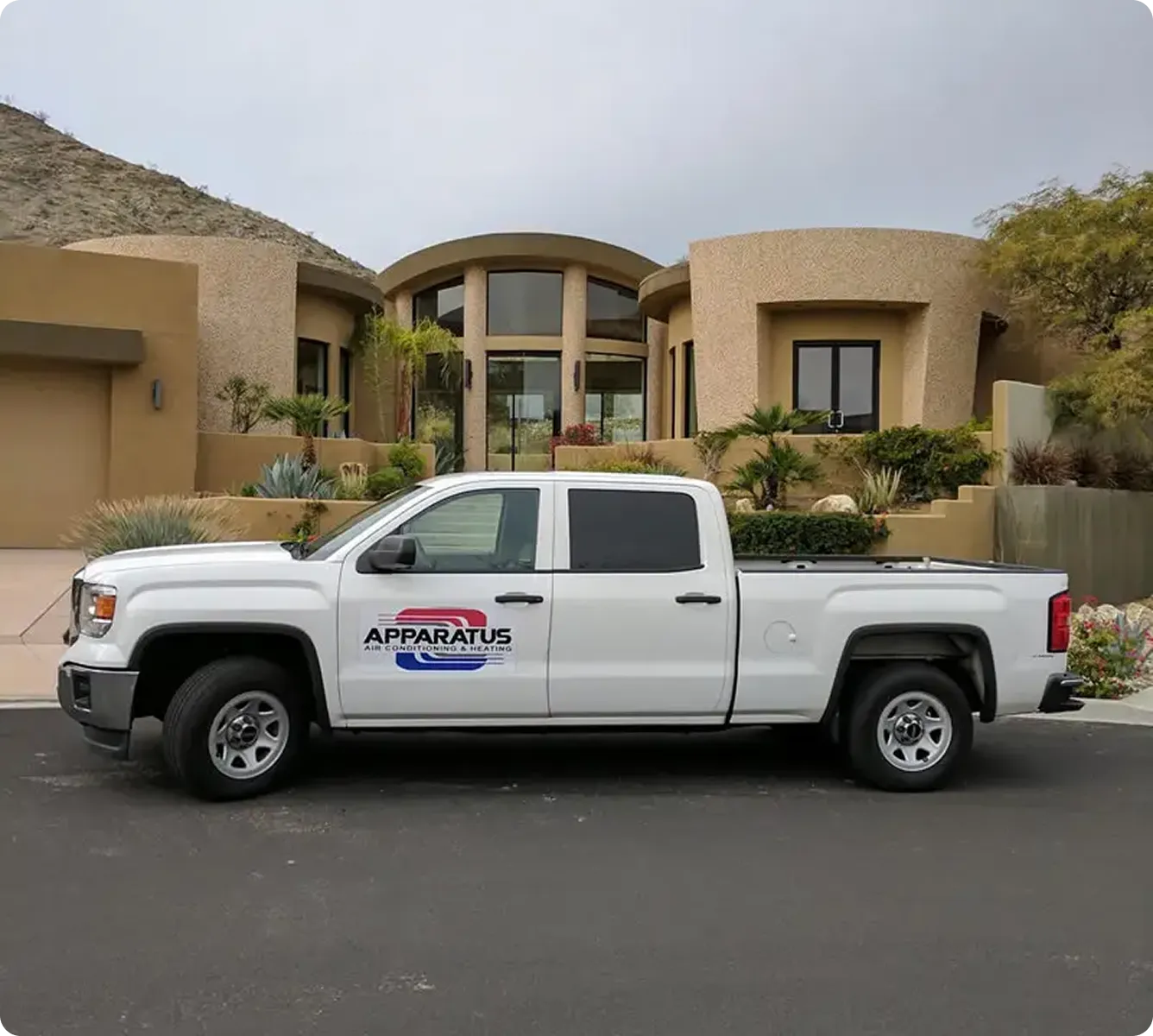
Water Heater Installation in Bermuda Dunes, CA
Water Heater Installation in Bermuda Dunes, CA
Choosing the right water heater and getting it installed correctly is one of the most important upgrades for comfort, safety, and long-term energy savings in Bermuda Dunes, CA. With desert heat, hard water, and seasonal visitor demand in the Coachella Valley, homeowners and rental property managers need a system sized and installed to meet peak hot water needs while minimizing scale buildup and energy waste.
-min.webp)
Common water heater types and which works best in Bermuda Dunes, CA
- Traditional storage tank water heaters
- Pros: lower initial complexity, predictable first hour delivery, simpler repairs.
- Cons: heat loss from standby storage, more vulnerable to scale buildup from hard water common in the Coachella Valley.
- Best when: space is available and peak simultaneous demand is high.
- Tankless (on-demand) water heaters
- Pros: virtually limitless hot water, lower standby losses, smaller footprint.
- Cons: higher upfront equipment and installation complexity, performance affected by incoming water temperature and mineral content.
- Best when: households want continuous flow, energy savings, or have limited space.
- Hybrid heat pump water heaters
- Pros: very efficient in moderate climates, lower operating costs.
- Cons: require adequate indoor space and airflow, may be less common in desert installations but suitable for conditioned garages or utility rooms.
- Best when: maximizing efficiency while keeping operating costs low is a priority.
- Solar-compatible systems
- Pros: great match for Bermuda Dunes with abundant sun; can significantly reduce energy use.
- Cons: higher integration complexity and upfront planning.
Energy-efficiency is especially important in California; look for high Uniform Energy Factor (UEF) ratings and compatibility with California efficiency requirements.
Site assessment and professional sizing for Bermuda Dunes homes
A proper installation starts with a detailed site assessment and accurate sizing. Key assessment items include:
- Location and clearance: indoor utility closet, garage, or outside wall; ventilation needs for gas units.
- Fuel type and capacity: gas line size and meter capacity for tankless demand spikes, or electrical service capacity for electric and heat pump units.
- Peak hot water demand: family size, number of bathrooms, and typical simultaneous appliance use define needed gallons per minute (GPM) for tankless or first-hour rating (FHR) for tanks.
- Incoming water temperature and mineral content: desert groundwater in the Coachella Valley is often mineral-rich; high hardness reduces efficiency and increases maintenance.
- Structural and seismic considerations: California requires seismic strapping for tanks and proper mounting for wall-hung units.
- Space for required safety devices: expansion tanks, pressure relief valves, condensate drains, and accessible service clearances.
Accurate sizing avoids undersized systems that lead to cold showers and oversized systems that waste energy.
Professional installation steps — what to expect
A professional installation follows methodical steps to ensure performance and code compliance:
- Pre-install preparations: order the correct model based on the site assessment; pull permits as required.
- Removal and disposal: safe draining and removal of the old unit, including proper disposal or recycling.
- Structural and gas/electrical modifications: upgrade gas lines, reroute plumbing, or add electrical circuits as needed.
- Mounting and connections: secure tank or wall-hung unit with earthquake straps if required; make water, gas, and electrical connections per manufacturer instructions.
- Venting and combustion air: install direct venting, power venting, or atmospheric venting for gas units, ensuring proper clearances.
- Safety device installation: install temperature and pressure relief valve, expansion tank if required, and check valves.
- Insulation and condensate management: insulate hot water lines and add condensate drains for high-efficiency units.
Throughout installation, technicians confirm manufacturer torque, clearances, and materials to avoid leaks and premature failures.
Permits, code compliance, and local regulations
Water heater installations in Bermuda Dunes must follow California building and plumbing codes and local Riverside County rules. Common requirements include:
- A building permit and final inspection for replacement or new installations.
- Seismic strapping and anchoring for storage tanks.
- Compliance with energy efficiency standards and labeling.
- Proper venting, combustion air, and clearances for gas appliances.
Permits and inspections protect homeowners by ensuring installations meet safety and efficiency standards. Documentation from the install is typically provided for the inspection.
Testing, commissioning, and quality checks
Commissioning verifies the system is safe and performs as intended:
- Pressure testing for leaks on water and gas connections.
- Combustion and venting checks for gas units to confirm proper draft and no backflow.
- Flow testing and temperature verification to match the specified GPM or FHR.
- Programming controls and thermostats, setting recommended temperature limits, and verifying auxiliary components like recirculation pumps.
- Final walkthrough documenting operating instructions and warranty registrations.
A completed commissioning report is useful for warranty claims and inspection sign-off.
Expected timeline and cost factors
Typical timeline:
- Simple like-for-like replacement: same day to one day.
- Upgrades requiring venting, gas line, or electrical work: 1 to 2 days.
- Complex installs or new locations, solar integration, or major plumbing changes: multiple days with additional inspection waits.
Cost is influenced by:
- Unit type and efficiency level.
- Need for gas line upgrades, electrical work, or venting modifications.
- Required permit fees and inspections.
- Water treatment needs such as water softeners or descaling systems in hard water areas.
- Accessibility and structural work for new locations.
Rather than focusing on a price number, evaluate quotes based on the scope of work, included inspections, and warranty coverage.
Post-installation support, maintenance, and warranties
After installation, expect two types of protection:
- Manufacturer warranty for the tank or heat exchanger and components.
- Labor warranty from the installer covering workmanship for a set period.
Recommended maintenance for long-term performance in Bermuda Dunes:
- Annual flush and inspection for tank units to reduce sediment and corrosion.
- Descale or flush tankless units every 6 to 12 months if water hardness is high.
- Replace sacrificial anode rods in tanks as recommended.
- Inspect relief valves, expansion tanks, and venting annually.
Proper maintenance extends life, preserves efficiency, and helps avoid emergency replacements.
Why timely installation matters in Bermuda Dunes, CA
Replacing an aging or failing water heater proactively prevents major inconveniences during peak seasons, reduces safety risks, and often improves energy efficiency. In a desert climate with mineral-rich water and high seasonal occupancy, the right system and professional installation reduce repair frequency and deliver reliable hot water when you need it most.
Upgrading to a properly sized, code-compliant, and well-maintained system brings comfort, safety, and predictable operating costs for Bermuda Dunes homes and rental properties.

hear what our satisfied
clients have to say









.webp)